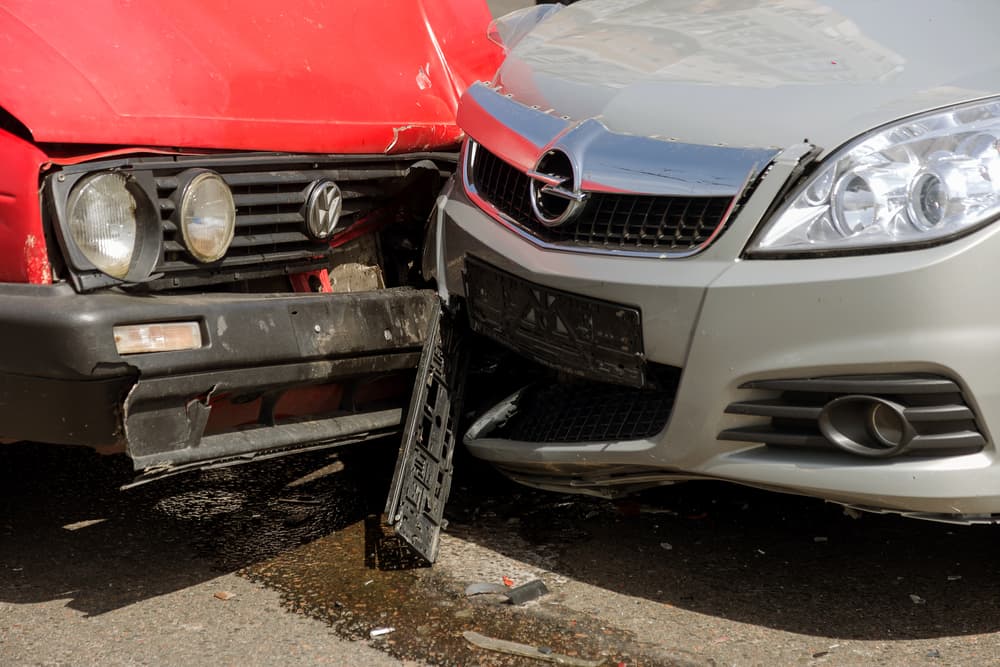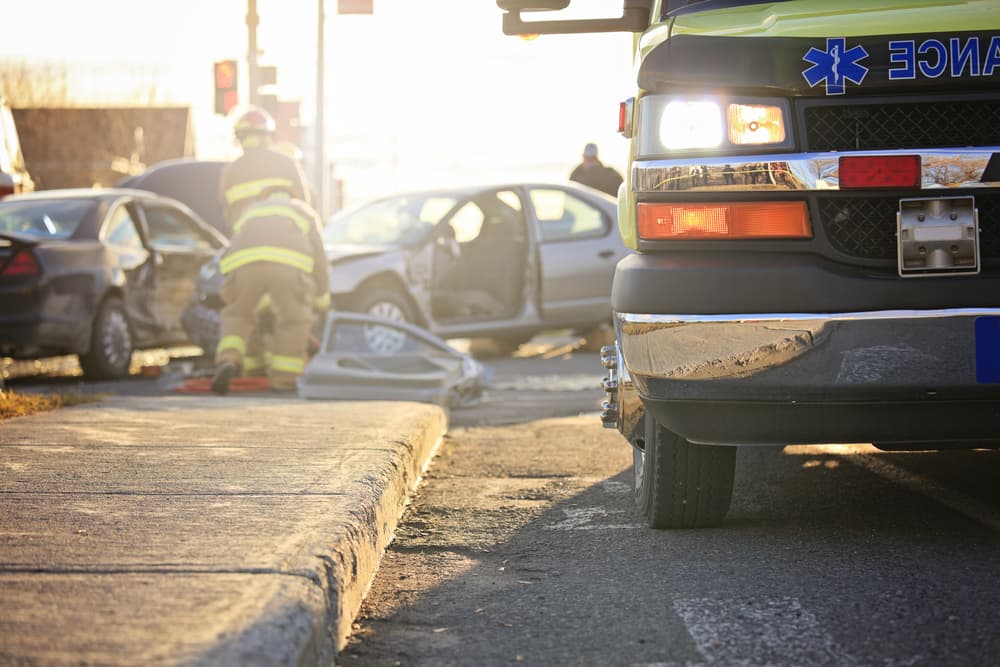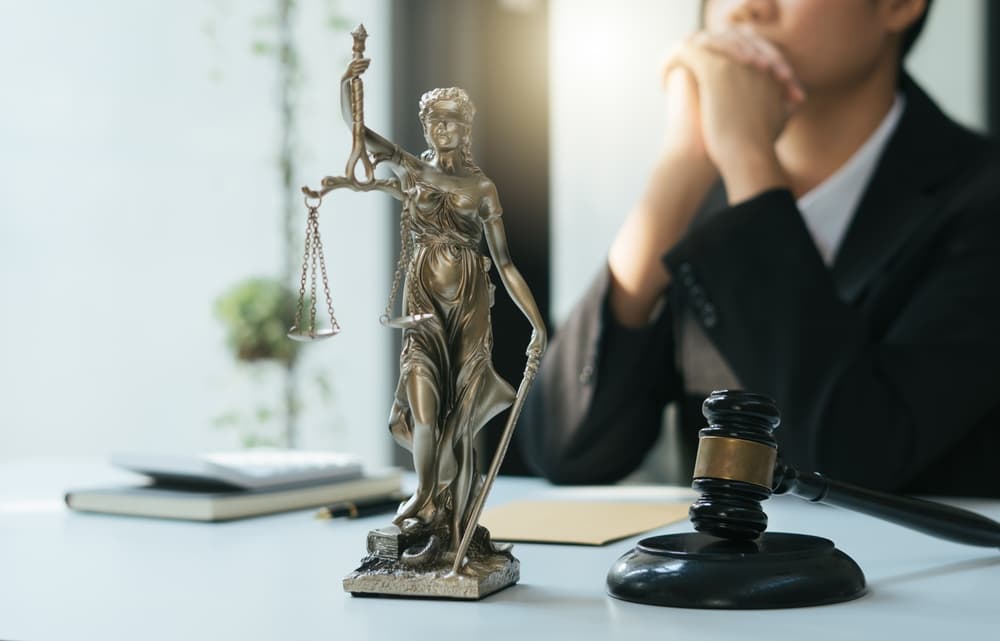- July 12, 2024

As a major city, Grand Rapids sees its share of car accidents. From fender benders on Beltline to more serious collisions on 131, these incidents can leave lasting impacts on victims and their families. Understanding what to do after a car accident in Grand Rapids is not just helpful—it's essential for protecting your health, your rights, and your future.
If you sustained an injury or lost a close family member in a Grand Rapids auto accident, you deserve compensation and justice for the hardships you’ve endured. An experienced Grand Rapids car accident lawyer can evaluate your case, explain your options for seeking compensation, and serve as a steadfast advocate for you to help maximize your financial recovery.
Read on to learn of the important steps you should take after a car crash in Grand Rapids and how you can find the legal help you need to secure the best outcome possible from your car accident injury claim.
Contact us online, and let us safeguard your rights and future.
Steps to Take Following a Grand Rapids Car Crash
Ensure Safety First
- Check for injuries: Your well-being is the top priority. Take a moment to assess yourself and your passengers for any injuries, no matter how minor they may seem. Even if you feel fine, adrenaline can mask pain, so always get a prompt medical evaluation.
- Move to a safe location if possible: If your vehicle is driveable and you're in a dangerous spot, carefully move to the shoulder or a nearby parking lot. This reduces the risk of secondary accidents.
- Turn on hazard lights: Alert other drivers to the situation by turning on your hazard lights.
These simple steps can prevent further accidents and injuries:
- Call 911
- Document the Accident Scene
- Exchange Information
- File a Police Report
- Seek Medical Attention
- Notify Your Insurance Company
- Consult a Grand Rapids Personal Injury Attorney
- Preserve Evidence
- Be Cautious with Communication
Call 911
- Report the accident: Even if the collision seems minor, it's crucial to have an official record. Call 911 to report the accident to the Grand Rapids Police Department.
- Request medical assistance if needed: If anyone is injured, request immediate medical attention. Your health and safety come first, and prompt medical care can also provide important documentation for your case.
Document the Accident Scene

- Take photos of vehicle damage: Use your smartphone to capture clear images of all damage to your vehicle and any others involved. These visual records can be invaluable for insurance claims and potential legal action.
- Photograph the overall accident scene: Capture wide shots of the entire scene, including road conditions, traffic signs, and the positions of the vehicles involved.
- Note weather and road conditions: Jot down any factors that may have contributed to the accident, such as rain, construction, or malfunctioning traffic lights.
Exchange Information
- Get contact and insurance details from other drivers: Collect names, phone numbers, addresses, insurance company names, and policy numbers from all drivers involved.
- Collect contact information from witnesses: If any bystanders saw the accident, politely ask for their contact information. Their accounts could be crucial for your case.
File a Police Report
- Request official documentation: A police report serves as an objective account of the accident and can be vital for insurance claims and legal proceedings.
- Provide accurate information to responding officers: Be honest and thorough when describing the events to the police but don’t admit fault or make speculative statements.
Seek Medical Attention
- Even if injuries seem minor: Some injuries, like whiplash or internal trauma, may not be immediately apparent. It's always wise to get checked out by a medical professional.
- Importance of documenting injuries for potential claims: Medical records serve as crucial evidence linking your injuries directly to the accident, which is essential for any future compensation claims.
Notify Your Insurance Company
- Report the accident promptly: Contact your insurance provider as soon as possible to report the accident. Most policies require timely notification.
- Provide basic facts: Stick to the facts when describing the accident to your insurer. Avoid speculating about fault or making definitive statements about what happened.
Consult a Grand Rapids Personal Injury Attorney

- Benefits of legal representation: An attorney can help you navigate the complex legal landscape, deal with insurance companies, and protect your rights throughout the process.
- How an attorney can help with your claim: From gathering evidence to negotiating with insurance companies, a skilled attorney can significantly improve your chances of receiving fair compensation.
Preserve Evidence
- Keep all accident-related documents: Save every piece of paperwork related to the accident, including police reports, insurance correspondence, and medical bills.
- Save medical records and bills: Maintain a comprehensive file of all medical treatments, prescriptions, and related expenses. This documentation is crucial for demonstrating the full extent of your injuries and financial losses.
Be Cautious with Communication
- Avoid discussing fault with other parties: Don’t make statements about who was at fault, even if you think you might be partially responsible. These statements can be used against you later.
- Watch what you say: Don’t apologize for the accident or say something others could misinterpret as your admitting fault. Don’t tell others you’re “fine” right after the crash or try to downplay your injuries.
- Stay off social media: Don’t post anything about the accident on social media, especially anything dealing with fault or cause. Insurance companies and defense lawyers can gain access to your posts, even if you have privacy measures in place.
- Be wary of early settlement offers from insurance companies: Insurance adjusters may try to settle quickly for less than you deserve. Don't accept any offers without consulting an attorney first.
Michigan's No-Fault Insurance Laws
Michigan operates under a no-fault insurance system, which means your own insurance typically covers your medical expenses and lost wages, regardless of who caused the accident.
While the no-fault system provides certain benefits, it also places limitations on when you can sue another driver. Understanding these nuances is crucial for pursuing fair compensation.
Factors That Determine Whether You Have a Valid Car Accident Claim
While every accident is unique, several key factors can influence the validity and strength of your car accident claim in Grand Rapids:

- Negligence: To have a valid claim, your attorney must be able to demonstrate that another party (usually another driver) was negligent. This means the other party failed to exercise reasonable care while driving, leading to the accident.
- Injuries and damages: Michigan law allows you to file a lawsuit against the at-fault driver if you've suffered serious injuries. This typically includes permanent disfigurement, serious impairment of body function, or death.
- Evidence: The strength of your claim often depends on the quality and quantity of evidence you can provide. This includes police reports, witness statements, photos of the accident scene, and medical records.
- Timeliness: Michigan has a three-year statute of limitations for filing car accident lawsuits. You must contact an attorney and take action within this timeframe or risk losing your right to obtain compensation.
- Insurance coverage: The types and amounts of insurance coverage both you and the at-fault driver have can impact your claim's viability.
- Comparative negligence: Michigan follows a modified comparative negligence rule. If you're found to be more than 50% at fault for the accident, you cannot recover damages from the other party.
How an Attorney Can Help You Get Compensation After a Grand Rapids Car Accident
Navigating the aftermath of a car accident can be overwhelming, especially when you're dealing with injuries and emotional trauma. Here's how a Grand Rapids personal injury attorney can be invaluable in your pursuit of fair compensation:
- Case evaluation: An attorney can assess the specifics of your case, helping you understand your rights and the potential value of your claim.
- Evidence gathering: Lawyers have the resources and know-how to collect and preserve crucial evidence, including accident reports, surveillance footage, and expert testimonies.
- Dealing with insurance companies: Your attorney can handle all communications with insurance adjusters, protecting you from tactics designed to minimize your claim.
- Calculating full damages: Beyond immediate medical bills, an attorney can help quantify long-term costs, lost wages, pain and suffering, and other less obvious damages.
- Negotiation skills: Experienced attorneys are skilled negotiators who can advocate for your best interests. They often secure higher settlements than individuals can on their own. In fact, the Insurance Research Institute conducted a study that showed lawyers increase a person’s chances of getting a favorable settlement by 85%--they’re also able to get substantial settlements 3.5 times more often than those who don’t use attorneys.
- Litigation preparation: If the other party won’t offer a fair settlement, your attorney can prepare your case for trial and represent you in court if necessary.
- Understanding of local laws: A Grand Rapids attorney will have in-depth knowledge of Michigan's no-fault laws and how they apply to your specific situation.
- Stress reduction: By handling the legal complexities, an attorney allows you to focus on your recovery and well-being.
How Long You Have to File a Car Accident Lawsuit in Michigan
Understanding the time limits for filing a car accident lawsuit in Michigan is crucial for protecting your rights. Here's what you need to know:
- General statute of limitations: In Michigan, you typically have three years from the date of the accident to file a lawsuit for personal injuries or property damage.
- Exceptions for minors: If the injured party is under 18, the statute of limitations doesn't begin until they turn 18, giving them until their 21st birthday to file a claim.
- Government entities: If your accident involved a government vehicle or employee, you may have as little as 60 days to file a notice of intent to sue.
- Discovery rule: In some cases, where injuries weren't immediately apparent, the clock may start ticking from the date you discovered (or reasonably should have discovered) your injury.
- No-fault insurance claims: While not a lawsuit, it's important to note that you should file your no-fault insurance claim within one year of the accident to receive benefits.
- Wrongful death claims: If the accident resulted in a fatality, the personal representative of the deceased's estate generally has three years from the date of death to file a wrongful death lawsuit.
Remember, these timeframes are general guidelines. The specific circumstances of your case may affect these deadlines. Consulting with an attorney as soon as possible after your accident is the best way to ensure you don't miss critical filing deadlines.
Contact a Grand Rapids Car Accident Attorney Today

The aftermath of a car accident in Grand Rapids can be a challenging and confusing time. You may be dealing with physical pain, emotional distress, and financial uncertainty. You must remember that you don't have to face these challenges alone and likely have rights and options for pursuing compensation.
However, the complexities of car accident cases, especially under Michigan's no-fault system, require professional legal guidance. That's where Goodman Acker PC comes in.
Our team of dedicated Grand Rapids personal injury attorneys understands the intricacies of Grand Rapids car accident cases. We're committed to fighting for your rights and ensuring you receive the full compensation you deserve.
Don't let the statute of limitations run out on your claim. Don't settle for less than you deserve. Contact Goodman Acker PC today for a free consultation. Let us put our knowledge, experience, and resources to work for you.
Contact us online, and let us safeguard your rights and future.

